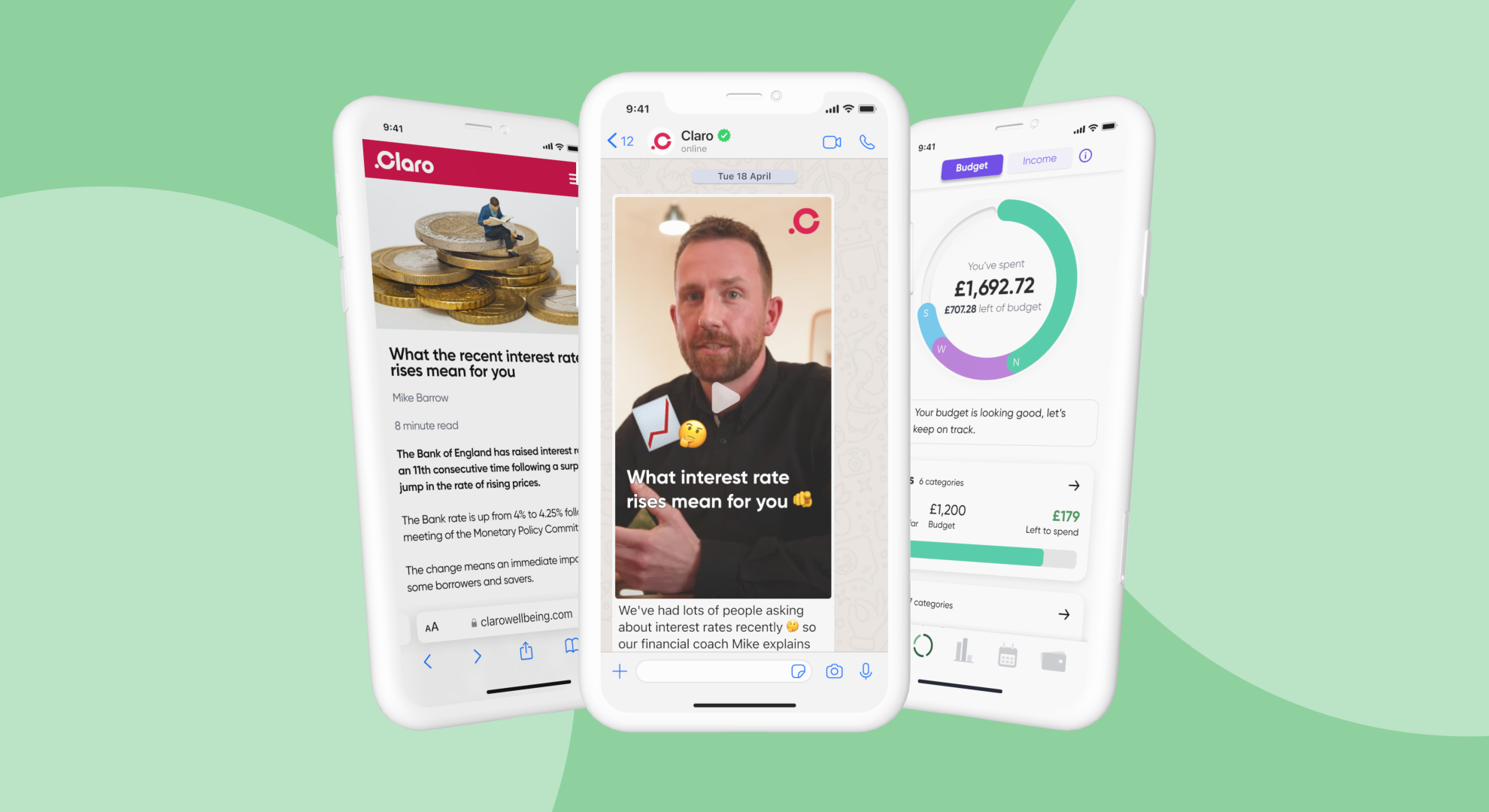6 min read
Should employers acknowledge Blue Monday?
Blue Monday (15 January) has a mixed reputation. But there’s still value in using the day to raise awareness of mental health and wellbeing...

Klarna has confirmed it will start sharing customer information with credit agencies from 1 June 2022. Could using Klarna affect your credit score?
The short answer is: yes, using Klarna has the potential to affect your credit score.
From 1 June 2022, a change in what Klarna reports will mean there are more ways using Klarna could affect your credit score.
Until 1 June 2022, Klarna will not share any information about customers with credit reference agencies, unless you miss repayments or use a “Financing” option.
From 1 June 2022, Klarna will continue to report customers to credit agencies if you miss repayments or use financing, but it will also start sharing data about your transactions and debts with two major UK credit agencies – Experian and TransUnion. Credit card companies and lenders typically use information held by credit agencies to assess your creditworthiness.
According to its announcement, Klarna will share information about “consumer purchases paid on time, late payments and unpaid purchases” for both its “Pay in 30 days” and “Pay in 3” products.
The change will only start to have an effect on credit scores at the end of 2023.
Depending on how responsibly you manage your repayments and borrowing, the effect of using Klarna on your credit score could be either positive or negative – just like when you use a credit card.
For example, if you borrow only a small amount and make every repayment on time, using Klarna could positively affect your credit score. This is because you’ll be showing potential lenders that you have a consistent track record of repaying money you owe.
However, if you fail to make repayments on time, Klarna could report you to credit reference agencies, which could negatively affect your credit score. Using Klarna can also negatively affect your credit score if you apply to use financing and if you take out a payment holiday. These could impact your ability to take out a new credit card or even a mortgage.
Because the mechanism by which Klarna will report your debt and repayment data to credit agencies is new, it’s not possible to know how the fact of using Klarna will affect your credit score. Klarna has stated that it intends to work with credit agencies “to ensure that any future impact on credit scores is fair and proportionate”.
“Buy-now-pay-later” (BNPL) companies like Klarna hope to appease regulators by self-regulating in a bid to prevent stricter, traditional regulatory oversight.
In February 2021, the UK government announced that the financial regulator in the UK will regulate BNPL firms. Such regulation is currently taking shape.
Lawmakers have been calling for regulation of BNPL firms amid fears households could be racking up large amounts of debt.
According to its website, Klarna runs what’s known as a soft check on your credit score for products like “Pay in 30 days”. This type of credit check cannot affect your credit score because the check is not reported.
However, if you:
Then your credit score may be affected. This is because Klarna runs credit checks on you if you use these options, which will be reported on your credit report.
If you fail to make repayments or if you take out a “Financing” option and Klarna reports this information to credit reference agencies, then Klarna will show up on your credit report.
From 1 June 2022, if you use Klarna and make repayments on time, Klarna will appear on your credit report. This will potentially positively affect your credit score. Your credit score is calculated based on the information held in your credit report.
From 1 June 2022, Klarna could help you build your credit when using “Pay in 3”, “Pay in 30 days” or creating a “One-time card”. But only if you always make repayments in full, on time.
Klarna’s financing options offer more risk to your credit score, so it’s worth spending a bit of time understanding what they actually are.
Klarna’s financing is for longer term borrowing, for example, periods between 6 – 36 months. When you apply, you are really only presented with one offer, which is unique to you.
The interest rates and exact repayment terms you are offered depend on your individual agreement with Klarna. To calculate this, Klarna carries out a full credit check on you. This kind of check is reported on your credit report and can be seen by other lenders. This can potentially harm your credit score.
Your credit score is a gauge of how likely you are to repay money that you owe. Credit card companies and lenders look at your credit score when assessing things like whether they should let you borrow and how much they should let you borrow.
If your goal is to build your credit score, there are much better ways to do it.
It’s worth understanding this: Klarna is free for consumers because it helps retailers sell more products. According to Sifted, retailers say customers buy as much as 20% more when items can be paid for at a later date.
You should consider using the time you have until the changes come into play to pay off any debt that you may have.
If you do need to use Klarna, here are some tips from us:
If you are saving to buy a house and looking for ways to build your credit score, it is worth noting that many lenders use a different credit agency – Equifax.
There are other ways to build a credit score. Generally, it could be better to have an interest free credit card and manage repayments responsibly. You can take out credit cards with a high street bank and ensure you pay them off. If you have had trouble with debt you can try, for example, Aqua, Vanquis or Capital One.
If you take out a credit card, it is still often better to keep your credit utilisation as low as possible by ensuring your purchases are small in comparison to your overall credit limit. Keep up with at least your minimum repayments and make sure you consistently clear your balance by the end of the interest-free period. Over time, this should help you build your credit rating.
You should avoid making more than one application at a time. It is also worth trying to get pre-approved or a good indication of approval by using an online broker like Money Saving Expert, Money Supermarket, or Compare The Market.
If you have a poor credit rating – it is still better to build credit with a credit card. You can usually access credit cards with 0% interest periods. These periods typically range from 4 – 36 months. If your credit rating is poor, you will likely find that you have a shorter 0% interest period. But this is a good start if managed correctly.
For those with existing debt or those that do not manage to clear their balance before the 0% interest period expires, there are also credit cards which have 0% interest periods on balance transfers. This means that you can transfer debt to a new lender without further interest being charged for a period of time (note, you usually have to pay a small balance transfer fee). This can give you breathing space to continue making payments and repaying debt, without paying unnecessary interest.
In addition to credit cards, there are alternative ways to improve your credit rating such as being registered on the electoral roll and ensuring there are no mistakes on your credit file. Nowadays, you can check your file easily online via a number of websites like Experian, Clearscore and “checkmyfile”.

6 min read
Blue Monday (15 January) has a mixed reputation. But there’s still value in using the day to raise awareness of mental health and wellbeing...

4 min read
Ever wished you had a money-whiz friend you could ask anything, as often as you like?

7 min read
Millions are being impacted by financial stress. Yet, until now, workers in frontline occupations have not been able to benefit from educational...